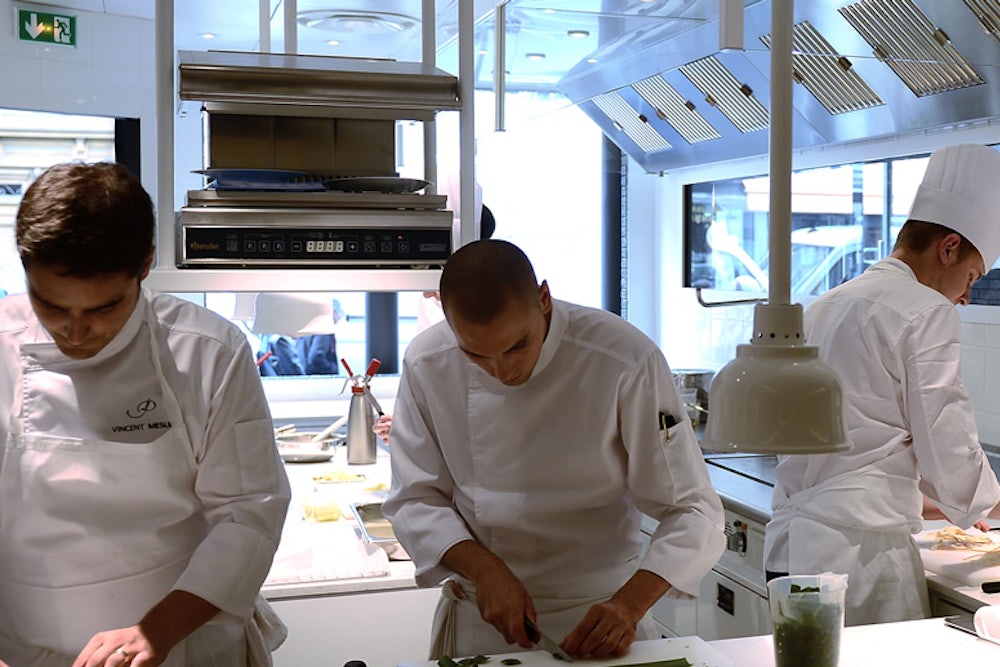Restaurants with open kitchens are fun; they remind you that someone is responsible for preparing your food, and that that someone is not you. Now new research from Harvard Business School and University College London suggests that this kind of floor plan could actually make food taste better.
And it's likely not just down to perception; cooks who can see their diners actually seem to step up their efforts in the kitchen, according to the working paper, featured in the November issue ofHarvard Business Review. The researchers set up iPads in a real, working cafeteria, and found that when diners and cooks could see each other, customer ratings went up 17 percent compared to when they couldn't see each other. Interestingly, diners' ratings of the food also went up when the cooks could see them, but the diners couldn't see the cooks (again, this is compared to the no-one-sees-anyone scenario).
"We've learned that seeing the customer can make employees feel more appreciated, more satisfied with their jobs, and more willing to exert effort," Researcher Ryan W. Buell, an assistant professor at Harvard Business School, told the Harvard Business Review.
Because, again, it doesn't seem like this is just about the diners' perception of the food changing; the cooks worked harder at the preparation of the food when they could see the customers, so the food actually got better. Buell explained:
During the experiment we had an observer in the kitchen taking notes and timing service. Normally, chefs would make eggs on the grill in advance, adding them to plates as needed and often overcooking them. When we turned on the screens and the chefs saw the customers, they started making eggs to order more often.
Okay, but why did the cooks react this way? Could seeing the customers be causing them anxiety, making them feel like they were being monitored? Tami Kim, a doctoral student at Harvard Business School and co-author on the paper, thinks the explanation is less cynical than that:
This is more about gratitude--which is a powerful force. Cooks constantly said how much they loved seeing their customers. Many wanted to keep the iPad setup. One said, "When the customers can see the work, they appreciate it, and it makes me want to improve."
The researchers think this concept could apply outside the kitchen, to businesses of all kinds. In other words, If I could've seen your shining faces reading this post, I might've worked a little harder at writing it.
This piece originally appeared on Science of Us, New York magazine's science blog.
